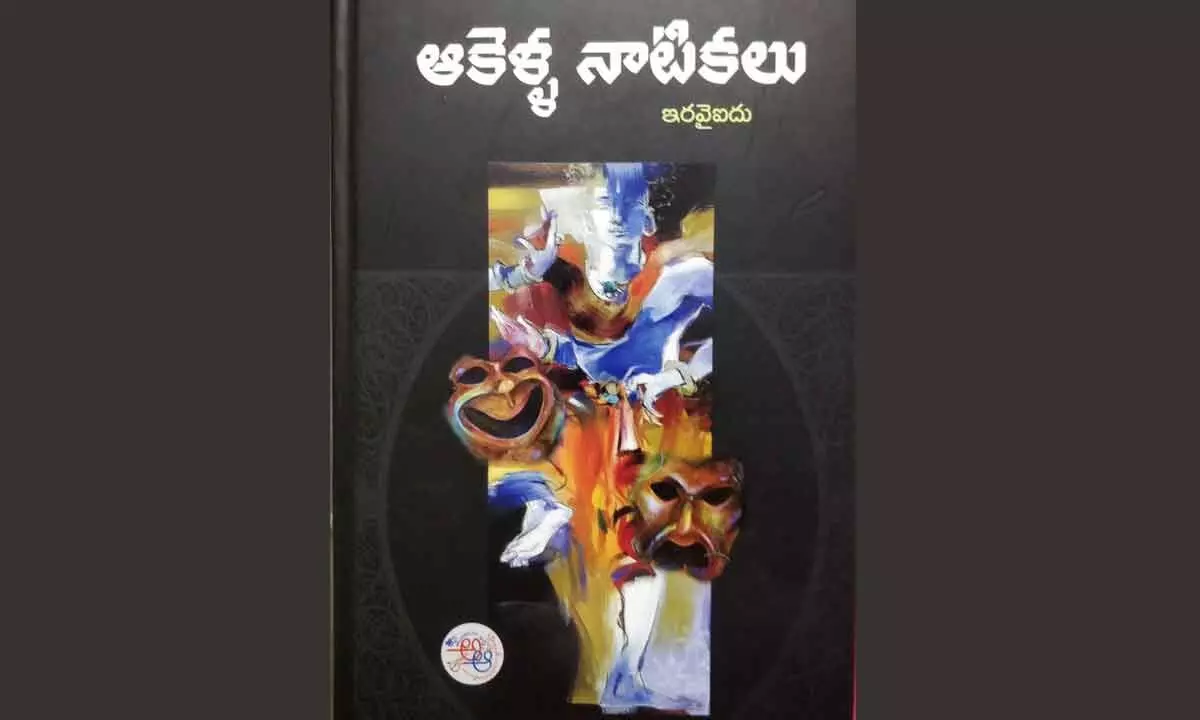Take a peep into our own nature

For the connoisseur of Telugu Theatre, Akella is a familiar name. In fact, Akella Venkata Suryanarayana, is also a well-known film writer too.
For the connoisseur of Telugu Theatre, Akella is a familiar name. In fact, Akella Venkata Suryanarayana, is also a well-known film writer too. He has won numerous accolades for his films like 'Swati Mutyam' and 'Shriti Layalu'. Nandi awards lined up for him and his message oriented works across all genres have won the admiration of the people.
Akella's plays have always won audience appreciation for his pragmatic outlook, in depth analysis and depiction of contemporary life and emotions. All his characters be it in 'amma', 'ambothu', 'thalli thandrulu jaagratta' and 'gadi' etc leave deep impact on the readers and viewers (in dramatised versions).
Critics and directors alike acclaim his works as 'directors plays' as those tender themselves to a certain breeziness on a stage and characterization becomes simple and easier. The 25 plays compiled in the book 'Akella Natikalu Iravai Aidu' are exceptions in several ways. Some of these had been penned at the request of the directors.
The ox that speaks in 'gadi' is all about fantasy. It is a truthful representation of the conditions that prevailed in the feudal societies of the past where exploitation and gender insensitivity were the order of the day. The concluding statement of the animal "all those with such demonic nature would be born like me" gives a powerful message to the society.
Similarly, 'repati shatruvu' holds a mirror to the middle class lives and their compulsions. The fast faced blame game that goes on in their daily drama subtly ends in the hope of the comfort of a dependent old age which is the real enemy one could confront.
What makes Akella's exceptional are his qualities. As is acknowledged, a certain devotion and openness - which are necessary to achieve writing greatness - are his qualities.
He describes the self-serving nature of human beings or selfishness in a man as the real 'ambothu' in the play named thus. The depiction of the 'old army with young spirit' in 'kotha sainyam' too is remarkable as it exhorts the senior citizens not to be at the mercy of their children and wither away in the last lap of their lives. "Instead, use your experience and skills, turn back to the villages" to lead a refreshing lives the author says.
The depiction of the reactions of three men representing three different classes (rich, middle and poor) of society in 'Indian gas' is an eye-opener. It exposes the hypocracy of the people when their wives get outraged. The moral outrage and its class nature does not come easily to writers unless they pay attention to detail in life. Akella has plenty of it.
Yet another aspect that strikes the readers is the discipline that is inherent to the writer as he seems to always better his best with improvements at every turn.
One hallmark of Akella's works is the strong vocabulary.
He minces no words in bringing out the shortcomings of his characters as in "amma' or 'aravai daatai yenduku'. This valuable quality helps him tackle even the densest subject matter by breaking it into uncomplicated pieces.
Akella's works make us take a peep into our own nature.










